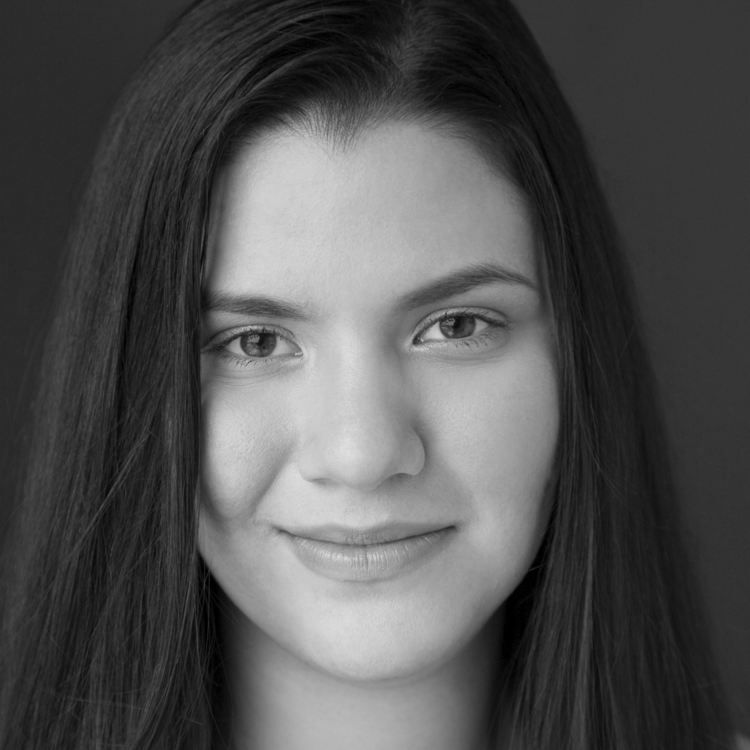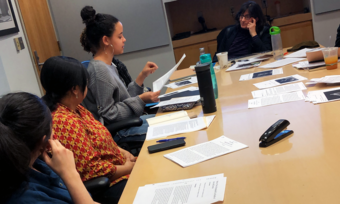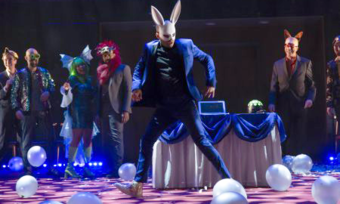The Importance of Story
I grew up believing that stories weren’t just entertainment but a saving grace, a passage into another world. As a young child, my world consisted of countless hours of Lion King, Boy Meets World, The Little Mermaid, We’re Back, and other features of family entertainment. Then, when I moved from Arizona to California and had few friends, stories were how I stayed connected to a world that I felt so far away from. They grew into a sanctuary when I started doing theater in middle school and high school. Here was an oasis of people who were able to connect through these imaginary circumstances. We helped tell the stories of Sam Shepard, John Patrick Shanley, Shakespeare, and Noel Coward. Stories grew into another realm of importance when I encountered my favorite history teacher in high school. Instead of just quizzes or tests, he told the history in his own words, as if he were giving a one-man show. I had never been so enthralled in a history class before. Stories to me were of an utmost importance, and everyone had a right to them.
I continued in my journey of acting when I was accepted into Emerson College’s BFA acting program. I was so excited to be at a school where storytelling took place in so many different forms. However, when I got to Emerson, I felt as if I didn’t recognize myself anymore. Before I found myself in the stories of Shanley and Shepard, but now I was only getting cast in parts such as Mexican pregnant girl, homeless person, or getting included in other all non-white casts. I am half Mexican and a quarter Lebanese, but that never mattered before. Growing up, white stories were reflected all around me so much that I thought I was white. Now people were looking at me differently, and I felt I didn’t know who I was anymore.
I began wondering why this was so, and realized that mainstream media only caters to a white audience, and more than that, so do our history classes. I recall a moment in my favorite history class when my teacher explained he couldn’t teach us more on the Mexican-American War because the California Education Standards didn’t leave time in the schedule for it. Never mind that we learned about George Washington and Abraham Lincoln every year a history class was given. It’s hard to tell more than just the white story when every other story has been wiped out.
Bothered by the casting and lack of stories, I used a class project opportunity where I conceived Hamlet in the context of the Mexican-American War. The aim of the project was to speak briefly about Manifest Destiny—American settlers believing they had god’s blessing to take the land away from Natives—and give students of color the opportunity to train and act in classical theater. I was honored when other Emerson students were moved by it so much that we put on a full-scale production of it. I felt I had done some good in the world, and helped create a platform for other stories that needed to be told as well.
Now, fresh out of college, I am reminded once again of the unfairness of casting and storytelling. I landed an acting job at an outdoor drama called Unto These Hills. Unto These Hills tells the story of the Eastern Band of Cherokee. It takes place on the reservation, is written by a Cherokee local, and at the heart is meant to educate people about the Cherokee people and their true history. I am very honored and touched to be a part of this production. However, because of lack of available training, many of the actors are not Cherokee. Furthermore, I have learned that the other and more famous outdoor drama, The Lost Colony, portrays American Indians by using white actors and spray-painting them brown. This said theater received, as of last year, a Tony honor and we can only hope that they bring changes to the casting.
I can’t help but feel that the current state of affairs is a call to action. It’s 2014, shouldn’t we have left brown face back in the pre-civil rights era? If our media fails us and our school systems refuse to teach true American history, shouldn’t we as theater-makers do something about it? I write about these things to not be a downer, but to urge the theater community to make room for more stories. Our storytelling will only become more meaningful when we have a diversity of experiences and voices joining the thespian chorus. Please, send out the Linklater teachers to Detroit where the city is left in shambles, the Meisner teachers to Annunciation House in El Paso where people are fighting for their lives, the Alexander teachers to Cherokee communities where the United States has turned its back on its true founding history. We must continue with organizations such as INTAR, Teatro Luna, and No Passport that encourage a canon of ethnic writers. The interesting stories have been with us always, we have just been taught to ignore them.
I believe Pulitzer Prize winning author Junot Diaz said it best during a lecture to kids in New Jersey, “You guys know about vampires? … You know, vampires have no reflections in a mirror? There’s this idea that monsters don’t have reflections in a mirror. And what I’ve always thought isn’t that monsters don’t have reflections in a mirror. It’s that if you want to make a human being into a monster, deny them, at the cultural level, any reflection of themselves. And growing up I felt like a monster in some ways. I didn’t see myself reflected at all. I thought,’Yo, is something wrong with me? That the whole society seems to think that people like me don’t exist?’ And part of what inspired me, was this deep desire that before I died, I would make a couple of mirrors. That I would make some mirrors so that kids like me might see themselves reflected back and might not feel so monstrous for it.”
Like Diaz described it is truly harmful for our community to not reflect all stories. I urge us now as theater-makers to make great efforts to spread the wealth of education and the gift of theater training.












Comments
The article is just the start of the conversation—we want to know what you think about this subject, too! HowlRound is a space for knowledge-sharing, and we welcome spirited, thoughtful, and on-topic dialogue. Find our full comments policy here
It would be great to see some of the things you describe happen.
However, I see the question of the use of brownface or blackface today as being a little more nuanced - for example:
http://www.nytimes.com/2006...
And this, the tradition of Morris dancers in England blackening their faces. I came across a group of these once in a small village by chance. The potential connections with race were indeed very present and initially troubling, however in the experience of the actual performance any racial implications seemed to have been lost in the mists of history, as described in the link. After looking into the history of this - which goes way back - my strong impression that it had more to do with the tradition of individual dancers creating an alternative, anonymous identity than anything else:
http://www.coconutters.co.u...
Hello Transatlantic,
Thank you for sharing this thought; it brings up a great point. It is amazing what great
performers can do.
Though this group the Woosters may have found a nuanced way of looking at black face in order to shed light on its racist history, I do feel there are many African American groups who are doing their own search for self through history but get ignored. For instance, Penumbra Theater, self-described as the country’s biggest African American theater, faced large
budget cuts during 2012 and had to cut season programing that year. The African
American Shakespeare Company in San Francisco has struggled to make ends meet
for years. Amazing solo performer, Daniel Beaty, deserves his story to be told
in front of thousands more of people. Unto These Hills is not nationally recognized like The Lost Colony, however between the two, Unto These Hills is the theater that actually includes Natives in the show because they actually care about telling the true Cherokee story. Though the Woosters may have had the best intentions, the truth of the matter is there are already groups of people of color working hard to tell their story. When we let others tell our untold story, things often get lost in translation. We must make room on the platform for people of color so the truthful stories are being told.
As for the folk dancers, yes one symbol can mean different things throughout history. For instance, the swastika sign wasn’t considered evil until the 1940’s. In other cultures it is used as a sign of life. However, in western culture, the swastika, much like black face, is widely seen as a hateful image. There has not been enough platform sharing to look at these hateful images in a nuanced way yet. We must even the playing field and share more true stories from their rightful owners before we encourage others to comment on such signs of hate.
Thank you for your thoughts, you brought up amazing points!
Beautiful and inspiring article, Karina! Totally agree that, "it is truly harmful for our community to not reflect all stories." Keep up the Good Work and keep on Writing!!! And if you're ever in the Western Mass area... look me up! I'd love to chat more.
I will!
Your metaphor of Vampires not being seen in mirrors as a way of making people into "monsters" is profound.
Hey Storycrafter!
That was all Junot Diaz's quote! You should look up more about him! He's inspiring!
Good points. What is your take on a white heterosexual man choosing to tell stories of gender, sexual and racial minorities? Is that allowable. I am a playwright and am intrigued by these stories but I am often told as a white heterosexual man I am not allowed to tell them. I will still tell them. I just wonder if a white man is allowed into the new canon. FYI, if you haven't read it yet, I recommend Luis Urrea's novel, "The Hummingbird's Daughter". It tells the type of story you long for.
Hello Chuck,
Thank you for responding. Of course it’s important for writers to write about what
intrigues them. You are a celebrated playwright and I’m very glad these issues catch your attention; we need more people like you. What I would encourage you to do; however, is instead of writing the stories on your own is to include the community you are writing
about and give them agency over the story. Rather that is devising a play with minority
actors or actually holding a workshop in a low-income area, just something that
allows the community your aiming to portray into your work more and giving them
ownership.
We must share the platform if we want to progress. During the Hamlet project I spoke of, we had a cast of people of color who were very talented but had no Shakespeare training. We brought in a young white female director, Margaret Clark, who had years of Shakespeare training. We worked together on the project as a collaboration: Margaret taught us Shakespeare and we taught her about the culture and the importance of the history. We could not have done the project with out each other.
I encourage you to continue writing celebrated works and to share the platform with those you want to portray. I believe we must think of stories as services to each other: how can I best tell this story so it is of service to the community? If we think and work with open minds, hearts, and eyes then we will truly create great work.
Thank you also for the novel reference! I'll have to look it up this summer!
Eloquently and powerfully put. Thank you.